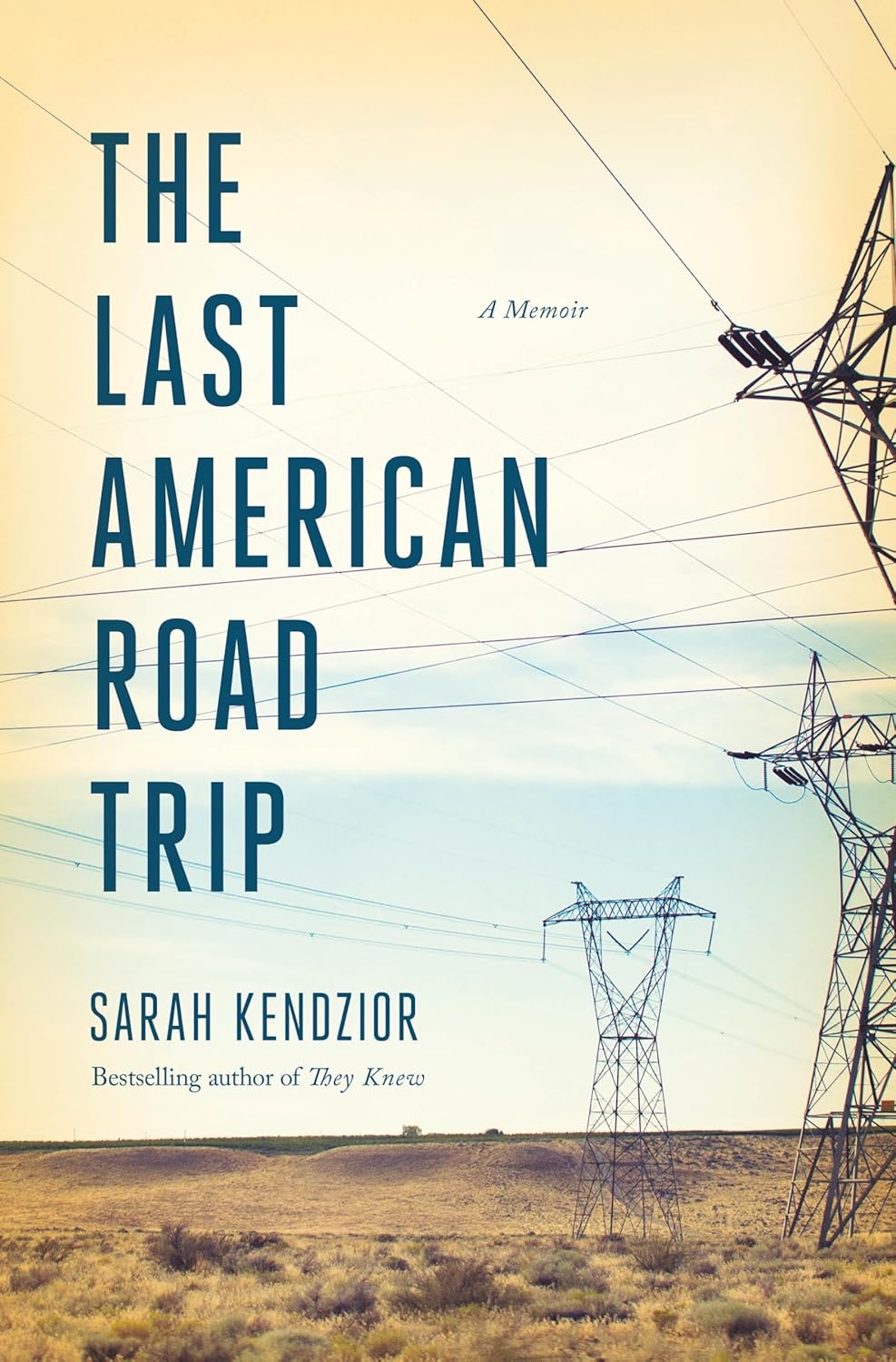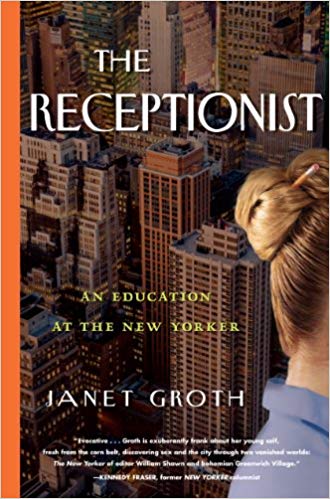The Last American Road Trip: A Memoir
- By Sarah Kendzior
- Flatiron Books
- 320 pp.
- Reviewed by Gretchen Lida
- March 31, 2025
Seen up close, is the U.S. worth saving?

Sometimes, being a book reviewer feels like being an oracle. Advance copies of tomorrow’s ideas arrive in the mail, and the reviewer takes a guess at how readers will perceive them when they finally enter the world. Of course, this sounds a little self-important, as a survey from the National Endowment for the Arts showed that fewer than half of Americans read even one book in 2022.
Hand-wringing about the state of literacy aside, Sarah Kendzior’s latest memoir, The Last American Road Trip, is a book that forced me to think about the world it would enter. It’s a chronicle of her attempt to show her two kids the grandeur of America before it is “too late.” As she travels, she answers the question on the minds of parents both here in the U.S. and around the world: How do we explain climate change and political unrest to our children? What does it mean that we’ve left them an unraveling planet?
The book landed on my doorstep before the 2024 election. The idea of “too late” teetered between two realities: Option one, Kamala Harris would be elected president, and perhaps we could fight our way out of the mess we’ve created. Option two, Donald Trump would be re-elected, and our slide toward fascism would continue. “When I worked at the New York Daily News, I learned that newspapers write the obituaries of ailing celebrities in advance,” Kendzior reflects. “I wondered if they should start doing that for nations.”
Kendzior is a longtime resident of St. Louis, Missouri, the central part of flyover country, the nickname of a great swath of the nation and the title of her bestselling collection of essays. Missouri has a dual purpose in this new book: It’s both the jumping-off point for her family’s adventures and a character itself. The state was the starting point of the Trail of Tears, the Oregon Trail, and Route 66. It considers itself part of the Midwest yet was also where the enslaved Dred Scott was denied his humanity. Missouri and its native son Mark Twain serve as a refrain throughout the narrative — regularly referenced, examined, and returned to.
From their Show Me State launchpad, the family hits the road. Kendzior notes that her kids have been to 38 states and 21 national parks. They explore caves, kitschy roadside attractions, and lots and lots of historical spots. National parks play a special role here, as if they’re the last portal to awe in a burning world. She notes the beauty of Glacier National Park in Montana, the haunting wonder of Colorado’s Mesa Verde, and the strange dissonance of the Chicago skyline viewed from the Indiana Dunes. As we now watch Elon Musk and his cronies gleefully take a chainsaw to the National Park Service, a painful ache accompanies the loveliness of these passages. “Too late” rings loudly.
The impending sense of doom in The Last American Road Trip might be cohesive, but the book’s structure is not. The often-unruly tale jumps back and forth in time, and there are chapters with similar names. Despite its chaos, however, the book is worth it; it forces readers to pay attention to little details and rewards them for doing so. In this way, it’s similar to the kind of small-town museums Kendzior might find on her travels: Everything is shoved together so that both low and high art — from the world’s smallest fill-in-the-blank to memorials to our darkest moments — exist side by side. It’s a haphazard recounting of shoestring-budget excursions funded by Kendzior and her husband’s penny-pinching across the land.
Perhaps its wandering is the book’s greatest virtue, one made better by the fact that Kendzior is a born flâneur. She is the queen of the one-liner. “I would be the model of the Midwestern housewife the right-wing claims to revere had I not spent my spare time writing books about plutocratic plots to strip my country down and sell it for spare parts,” she writes early on. Later, out on a trip, she observes that “no state combines scenery with sin quite like Arkansas.” Then, on the way to Utah, she proclaims, “We drove to that national park like the good Americans we are, the type of trash that leaves no trace.”
The Last American Road Trip turns the question “What do we say to the children?” on its head; here, it’s what the children say that matters. Kendzior’s kids often function like a Greek chorus, yawning at the strange places their mother takes them, pointing out the absurd, and holding the adults accountable. In one section, her daughter remarks, “We are always outrunning a fire,” recalling the multiple times they’ve fled disasters on their trips.
Ultimately, it’s the kids who prevent the book from being 300 pages of nihilism. Their presence suggests that we really do still have a future — albeit not the one we’d hoped for — and the only way to defeat the monsters seeking to destroy it is to look them in the face.
Gretchen Lida is an essayist and an equestrian. Her work has appeared in the Washington Post, the Rumpus, the Los Angeles Review of Books, and many other publications. She is a contributing writer at Horse Network and the Independent, and host of “HN Reads,” a podcast about horse books. She lives in Chicago.
